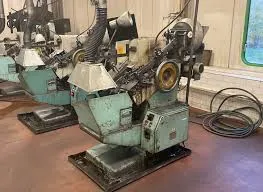
-
 Afrikaans
Afrikaans -
 Albanian
Albanian -
 Amharic
Amharic -
 Arabic
Arabic -
 Armenian
Armenian -
 Azerbaijani
Azerbaijani -
 Basque
Basque -
 Belarusian
Belarusian -
 Bengali
Bengali -
 Bosnian
Bosnian -
 Bulgarian
Bulgarian -
 Catalan
Catalan -
 Cebuano
Cebuano -
 Corsican
Corsican -
 Croatian
Croatian -
 Czech
Czech -
 Danish
Danish -
 Dutch
Dutch -
 English
English -
 Esperanto
Esperanto -
 Estonian
Estonian -
 Finnish
Finnish -
 French
French -
 Frisian
Frisian -
 Galician
Galician -
 Georgian
Georgian -
 German
German -
 Greek
Greek -
 Gujarati
Gujarati -
 Haitian Creole
Haitian Creole -
 hausa
hausa -
 hawaiian
hawaiian -
 Hebrew
Hebrew -
 Hindi
Hindi -
 Miao
Miao -
 Hungarian
Hungarian -
 Icelandic
Icelandic -
 igbo
igbo -
 Indonesian
Indonesian -
 irish
irish -
 Italian
Italian -
 Japanese
Japanese -
 Javanese
Javanese -
 Kannada
Kannada -
 kazakh
kazakh -
 Khmer
Khmer -
 Rwandese
Rwandese -
 Korean
Korean -
 Kurdish
Kurdish -
 Kyrgyz
Kyrgyz -
 Lao
Lao -
 Latin
Latin -
 Latvian
Latvian -
 Lithuanian
Lithuanian -
 Luxembourgish
Luxembourgish -
 Macedonian
Macedonian -
 Malgashi
Malgashi -
 Malay
Malay -
 Malayalam
Malayalam -
 Maltese
Maltese -
 Maori
Maori -
 Marathi
Marathi -
 Mongolian
Mongolian -
 Myanmar
Myanmar -
 Nepali
Nepali -
 Norwegian
Norwegian -
 Norwegian
Norwegian -
 Occitan
Occitan -
 Pashto
Pashto -
 Persian
Persian -
 Polish
Polish -
 Portuguese
Portuguese -
 Punjabi
Punjabi -
 Romanian
Romanian -
 Russian
Russian -
 Samoan
Samoan -
 Scottish Gaelic
Scottish Gaelic -
 Serbian
Serbian -
 Sesotho
Sesotho -
 Shona
Shona -
 Sindhi
Sindhi -
 Sinhala
Sinhala -
 Slovak
Slovak -
 Slovenian
Slovenian -
 Somali
Somali -
 Spanish
Spanish -
 Sundanese
Sundanese -
 Swahili
Swahili -
 Swedish
Swedish -
 Tagalog
Tagalog -
 Tajik
Tajik -
 Tamil
Tamil -
 Tatar
Tatar -
 Telugu
Telugu -
 Thai
Thai -
 Turkish
Turkish -
 Turkmen
Turkmen -
 Ukrainian
Ukrainian -
 Urdu
Urdu -
 Uighur
Uighur -
 Uzbek
Uzbek -
 Vietnamese
Vietnamese -
 Welsh
Welsh -
 Bantu
Bantu -
 Yiddish
Yiddish -
 Yoruba
Yoruba -
 Zulu
Zulu
Advanced Nail Thread Rolling Machines for Efficient Production and Precision Engineering in Manufacturing Industry
The Importance of Nail Thread Rolling Machines in Modern Manufacturing
In today’s fast-paced manufacturing environment, efficiency, precision, and quality control are paramount. One of the key processes that facilitate these requirements is the production of nail threads, particularly for construction and furniture applications. At the heart of this process is the nail thread rolling machine, a pivotal piece of equipment that has transformed the way manufacturers produce threaded nails.
Understanding Nail Thread Rolling Machines
A nail thread rolling machine is designed to produce threads on nails or similar fasteners using a cold forming process. Unlike traditional methods such as cutting or machining, thread rolling deforms the material to create threads, which enhances the integrity of the nails while minimizing waste. This technique not only improves the structural properties of the nails but also allows for faster production rates.
Advantages of Thread Rolling
The advantages of using a thread rolling machine in nail production are manifold. Firstly, the cold forming process results in stronger threads compared to those made by cutting. This is because it aligns the grain structure of the material, which enhances the tensile and fatigue strength of the nails. As a result, manufacturers can produce nails that can withstand higher loads and resist bending or breaking during use.
Secondly, thread rolling is highly efficient. It can produce large quantities of threaded nails in a relatively short amount of time, which is essential for meeting market demand. With the capacity to rapidly produce nails with consistent quality, manufacturers can significantly reduce lead times and improve their overall productivity.
Additionally, the cold forming process generates less waste. Traditional cutting methods often result in a considerable amount of scrap metal. However, thread rolling uses the material more efficiently, leading to reduced costs and a more environmentally friendly manufacturing process.
famous nail thread rolling machine

Technological Advancements
Recent advancements in technology have further enhanced the capabilities of nail thread rolling machines. Modern machines are often equipped with computer numerical control (CNC) systems that provide precise control over the thread rolling process. This technology not only allows for intricate thread designs but also enables rapid changeovers between different nail sizes and types. As a result, manufacturers can diversify their product offerings without sacrificing efficiency.
Moreover, the incorporation of automation has streamlined operations. Automated thread rolling machines can operate continuously, reducing the need for manual intervention and decreasing the likelihood of human error. This integration of robotics and machine learning allows for real-time monitoring and adjustments, ensuring that production quality remains consistently high.
Applications and Market Demand
The demand for threaded nails continues to grow across various industries, including construction, automotive, and furniture manufacturing. With a rise in DIY projects and home improvement initiatives, the market for high-quality, reliable fasteners has never been greater. As a result, investing in advanced nail thread rolling machines has become essential for manufacturers looking to stay competitive.
Conclusion
In conclusion, the nail thread rolling machine plays a crucial role in modern manufacturing, merging efficiency, quality, and innovation. As industries continue to evolve and demand for high-performance fasteners increases, the importance of advanced thread rolling technology will only grow. Manufacturer investments in high-quality thread rolling machines will not only enhance their production capabilities but also position them as leaders in a competitive market. Through these advancements, the future of nail production looks promising, opening new avenues for growth and sustainability.
